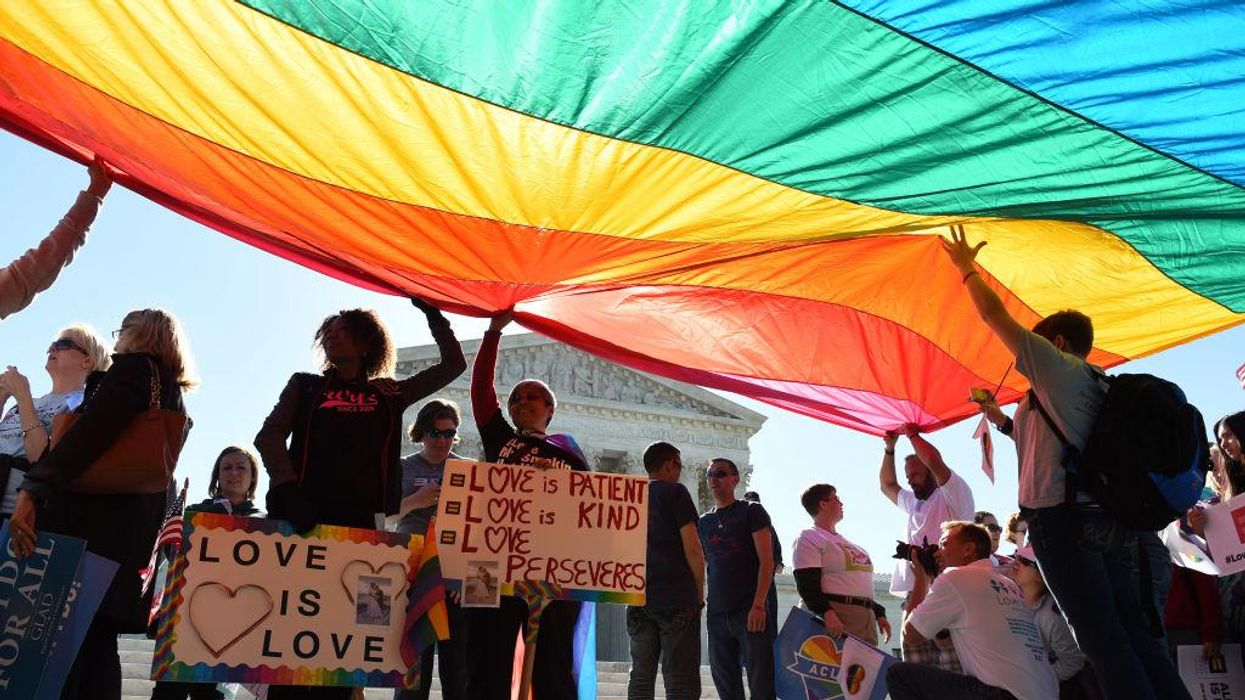
Photo by Astrid Riecken for the Washington Post via Getty Images

As soon as the United States Supreme Court decision in the Dobbs case overturned Roe v. Wade on Friday, many liberals and even some libertarians began to fear that gay marriage might be next — and a concurring opinion from Justice Clarence Thomas may further inflame those concerns.
In his opinion siding with the majority, Thomas wrote that the court should "in future cases ... reconsider all of this Court's substantive due process precedents, including Griswold, Lawrence, and Obergefell."
Obergefell refers to the landmark case Obergefell v. Hodges (2015), which legalized gay marriage in all 50 states.
"[T]his Court’s cases and the Nation’s traditions make clear that marriage is a keystone of the Nation’s social order. ... States have contributed to the fundamental character of marriage by placing it at the center of many facets of the legal and social order. There is no difference between same- and opposite-sex couples with respect to this principle, yet same-sex couples are denied the constellation of benefits that the States have linked to marriage and are consigned to an instability many opposite-sex couples would find intolerable. It is demeaning to lock same-sex couples out of a central institution of the Nation’s society, for they too may aspire to the transcendent purposes of marriage," the majority opinion of Obergefell reads (emphasis added).
Because Thomas calls for reconsideration of the reasoning behind the legalization of gay marriage — and the decriminalization of contraception and homosexual acts, as decided in the Griswold and Lawrence cases — many liberals have expressed fear that gay marriage might soon be outlawed once again.
Some Democratic politicians have made that assumption as well, though they and those of like mind probably have little to fear.
The chances that the court would actually revisit those other cases are quite slim, despite the striking language in Thomas' opinion, which says that the court has "a duty 'to correct the error' established in" Griswold, Lawrence, and Obergefell.
For one thing, none of the other SCOTUS justices who sided with the majority in the Dobbs decision concurred with Thomas' issued opinion, signaling that the court has little interest in reconsidering those precedents.
In addition, Thomas does not necessarily state that those decisions were wronglly decided. While the majority in the Dobbs opinion, written by Justice Samuel Alito, state unequivocally that "[l]ike the infamous decision in Plessy v. Ferguson, Roe was also egregiously wrong and on a collision course with the Constitution from the day it was decided," Thomas does not argue that Griswold, Lawrence, and Obergefell were wrongly decided, only perhaps wrongly reasoned.
Despite Thomas' legal reasoning and the fact that court is unlikely to revisit Obergefell, many on social media continue to assume that gay marriage may soon go the way of abortion.